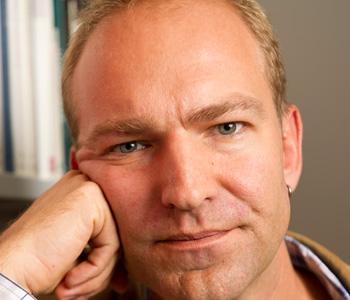Moderation is not, as some secularist firebrands would have us believe, just a watered down version of more committed beliefs. Rather, it is a way of believing that is different in kind, not in degree, from fundamentalism.
Moderates need not be religious at all. A moderately atheist position is just as feasible as a moderately religious one. It just refers to an atheist who knows he or she cannot know for certain any ultimate or metaphysical truth about the universe, and thus recognizes that his or her belief that there is no God is just that, a belief.
The only contradiction in terms is a moderate fundamentalist, as in the political cartoon depicting “moderate” Taliban instructing their eager students to fly panes half-filled with fuel into medium sized buildings.
It is time to stop fomenting aggression among people who are in agreement about the basic principles of democracy, and instead cultivate a suspicion toward the basic attitudes that underlie all fundamentalist thinking.
People like Sam Harris, Richard Dawkins, and I should be on the same page. After all, we are all dedicated to science, the promotion of democracy, and peaceful coexistence. And yet, by mistaking the root cause of so many social ills as being religion per se instead of a specific way of believing, these and other scholars and social commentators are alienating an enormous population of potential allies.
Luckily, in spite an apparent surge in fundamentalist behavior and atheist reaction in the awake of 9/11, the trend seems to be toward greater moderation.
It can be hard to see, since the media naturally tend to showcase stark contrasts and sensational stories. But the polling reveals a steady trend away from organized religions without a corresponding trend away from spiritual beliefs.
I take movement away from institutions to be a positive sign, since an essential role of institutions is to codify practices and beliefs. In that sense it is salutary to remember one of my favorite observations from Gary Wills, that the Catholic Church is not the institution of the papacy, it’s the community of believers.
In a similar way, it is incumbent on believers of all kinds (religious and non) to recognize in their faiths the call to tolerance of and peace with other communities.

